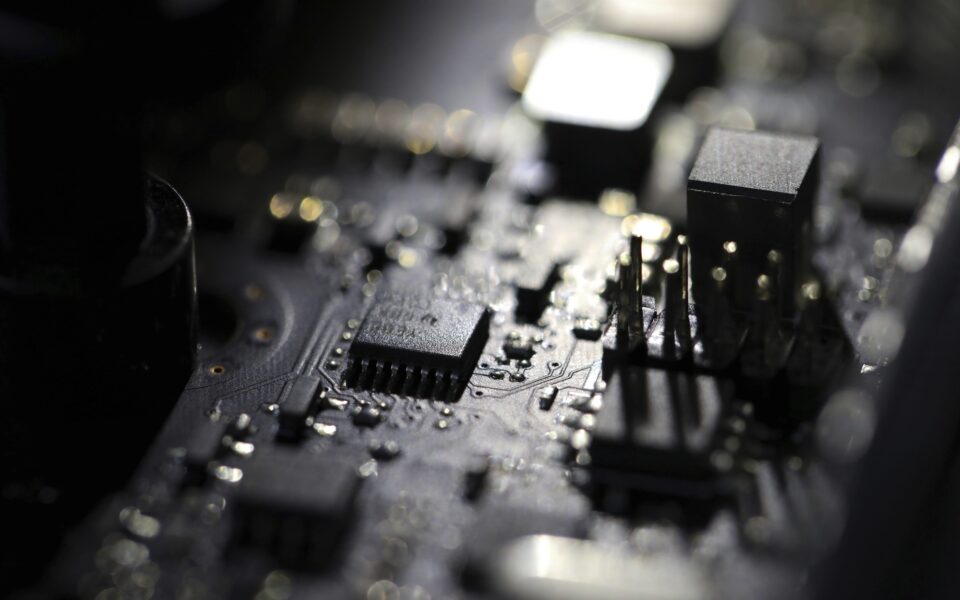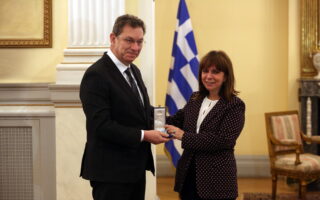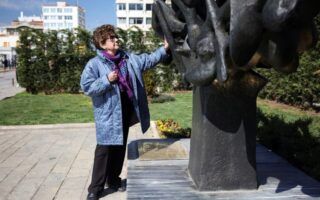Reversing Greece’s brain drain
Demokritos to receive deep-tech startups at its Athens business accelerator

Greece’s Demokritos National Center for Scientific Research is preparing to receive deep-tech startups from NATO countries at its business accelerator in Agia Paraskevi, northern Athens, within the next year.
That’s when the NATO Innovation Fund – the world’s first multi-sovereign venture capital fund, which was established last year – is set to begin making decisions on which startups will be paired with which of its nine entrepreneurial accelerators in Europe and North America. Demokritos was chosen as one of the nine accelerators last year as part of the NATO program known as DIANA, the Defense Innovation Accelerator for the North Atlantic.
“We’ve been contacted by several startups in America and Europe” about the possibility of relocating to Demokritos, said Dr George Nounesis, Demokritos’ director and chairman of the board.
A spokesperson for NATO said that DIANA is working on finalizing its governance structure and aims to be up and running by the time of the Vilnius Summit in July of this year. Its European regional office is being set up in London.
NATO has committed to invest 1 billion euros over a 15-year period in early-stage startups and other venture capital funds that are developing dual-use emerging technologies of both military and civilian application. The investments will be in such fields as artificial intelligence; big-data processing; quantum-enabled technologies; autonomy; biotechnology and human enhancement; novel materials; energy; propulsion and space.
The program represents a significant boost for Demokritos in its efforts to spur economic development in Greece through its research activities. The startups will join the 45 deep-tech companies that already participate in Demokritos’ own accelerator program. Demokritos provides its startups with physical spaces to set up operations, access to its laboratories and such business support services as branding and access to networks of investors.
“If you want to be an impactful research ecosystem, you have to open up to technology transfer, to private investment, to supporting entrepreneurship,” said Nounesis.
‘If you want to be an impactful research ecosystem, you have to open up to technology transfer, to private investment, to supporting entrepreneurship’
With the help of 48 million euros in funding from the European Investment Bank, Demokritos is upgrading its campus to support its research and technology development efforts that can help to transform the Greek economy.
Nounesis, an award-winning physicist, said these investments are part of Greece’s efforts to attract scientific talent back to Greece to reverse the brain drain that has afflicted the country, most severely in the last decade of financial crisis.
In the last four years, Demokritos has created some two dozen tenure track positions for researchers from abroad and an equal number for researchers from Greece in such fields as life sciences, biology, artificial intelligence, the internet of things, robotics and digital manufacturing, Nounesis said.
Seed funding of close to 8 million euros from Greece’s Resilience and Recovery Fund helped Demokritos establish a new Institute of Quantum Computing and Quantum Technology last year, which has received a first generation of young researchers and a young director, all coming from abroad.
One researcher who has heeded the call to return to Greece, Dr Filippos Tourlomousis, is setting up at Demokritos the first labs in Greece for digital manufacturing. Tourlomousis, who like Nounesis did his postdoctoral work at MIT, is founder/CEO of Biological Lattice Industries, an early-stage biotechnology company. He is developing an AI-driven robotic biofabrication platform for tissue engineering and regenerative medicine applications. Tourlomousis hopes his application will be commercially ready within five to seven years to enable women who have had mastectomies to regenerate healthy breast tissue.
Tourlomousis said he was inspired by the Materials Genome Initiative started by US President Barack Obama. The initiative is a multi-agency effort designed to create a new era of policy, resources and infrastructure that support US institutions in discovering, manufacturing and deploying advanced materials twice as fast, at a fraction of the cost.
Georgios Kontogiannis, one of the founders of Lambda Automata, a startup dedicated to building the “perception backbone for future defense and civil protection platforms,” said his company is planning on making an application to the DIANA program. The company, still in its seed funding stage, has been working with Demokritos. “We hope our products can be brought before the right eyes through these programs,” said Kontogiannis.
John Metaxas is an award-winning journalist, lawyer and podcaster.





